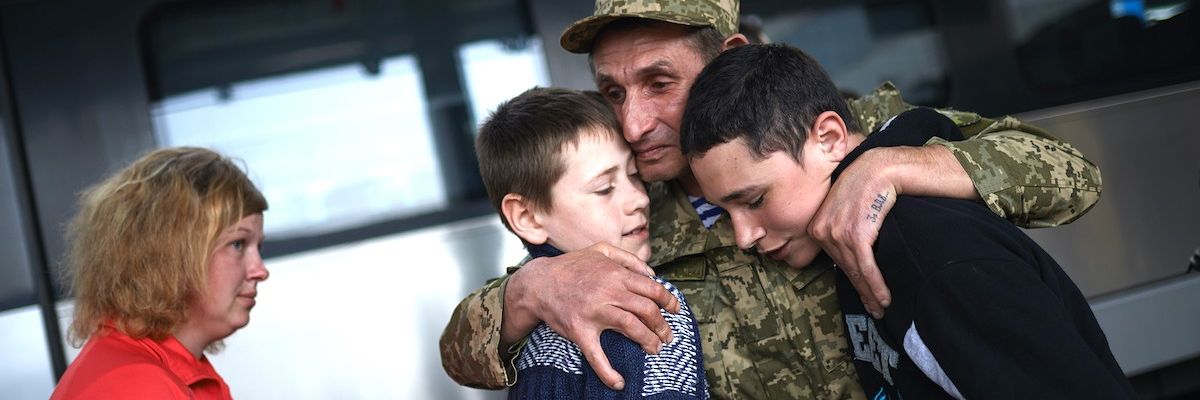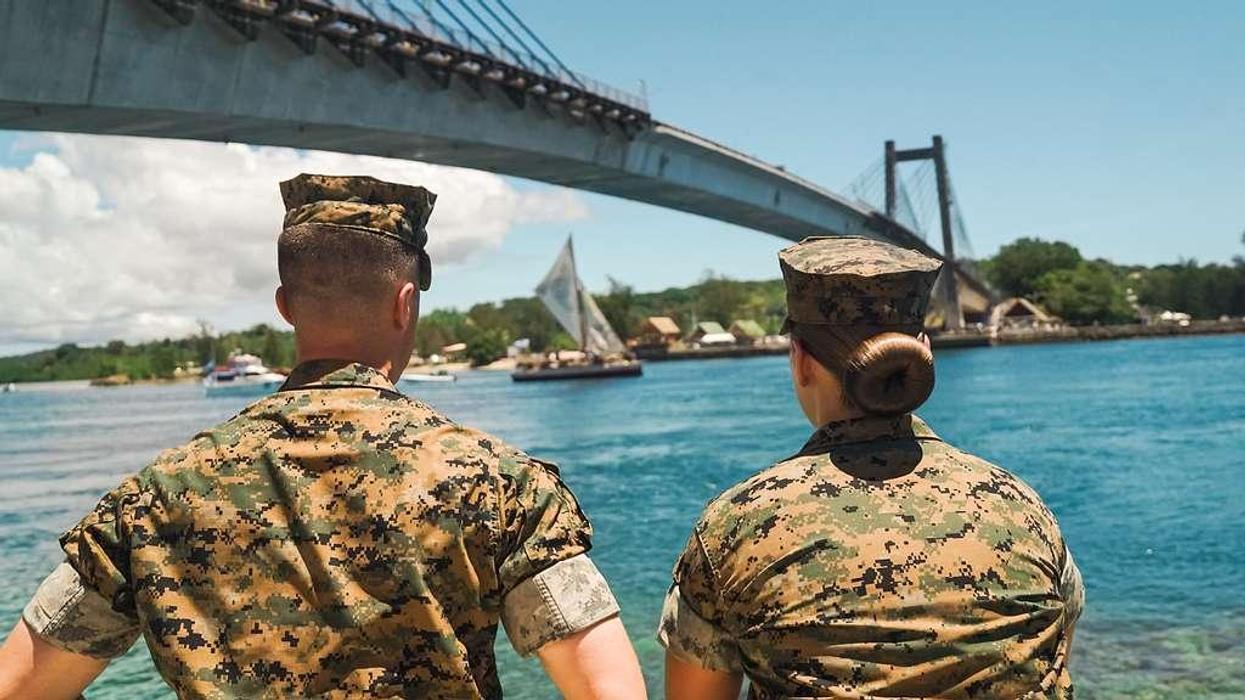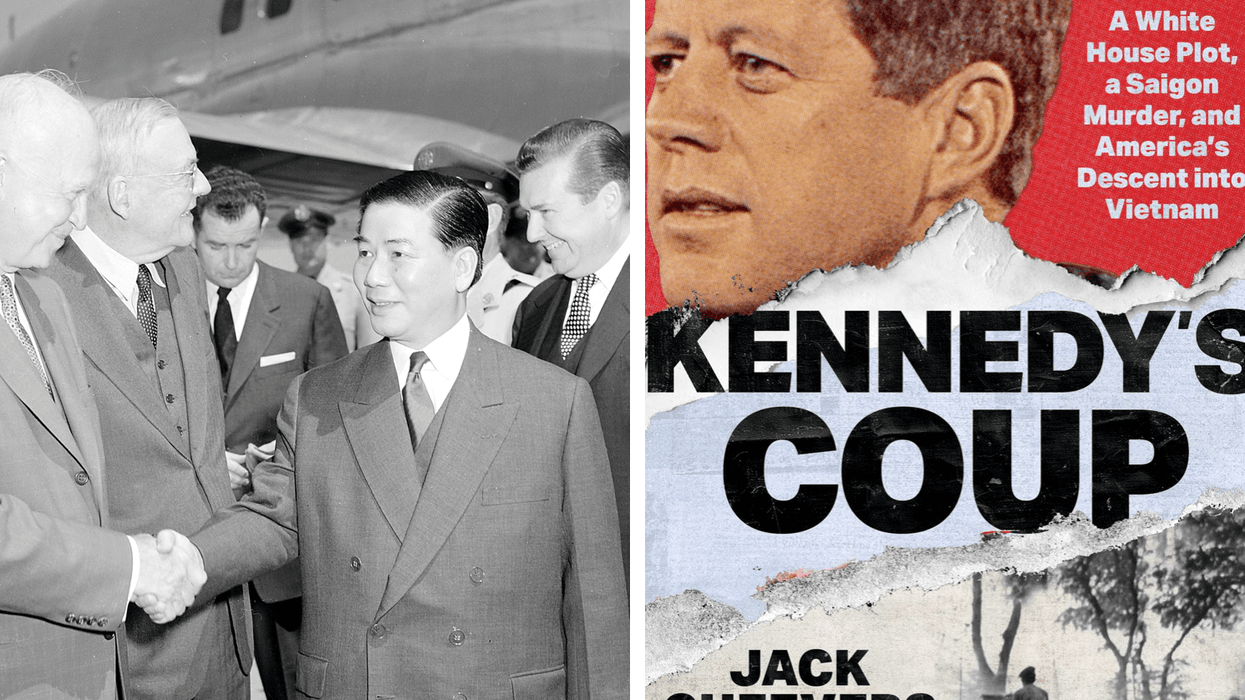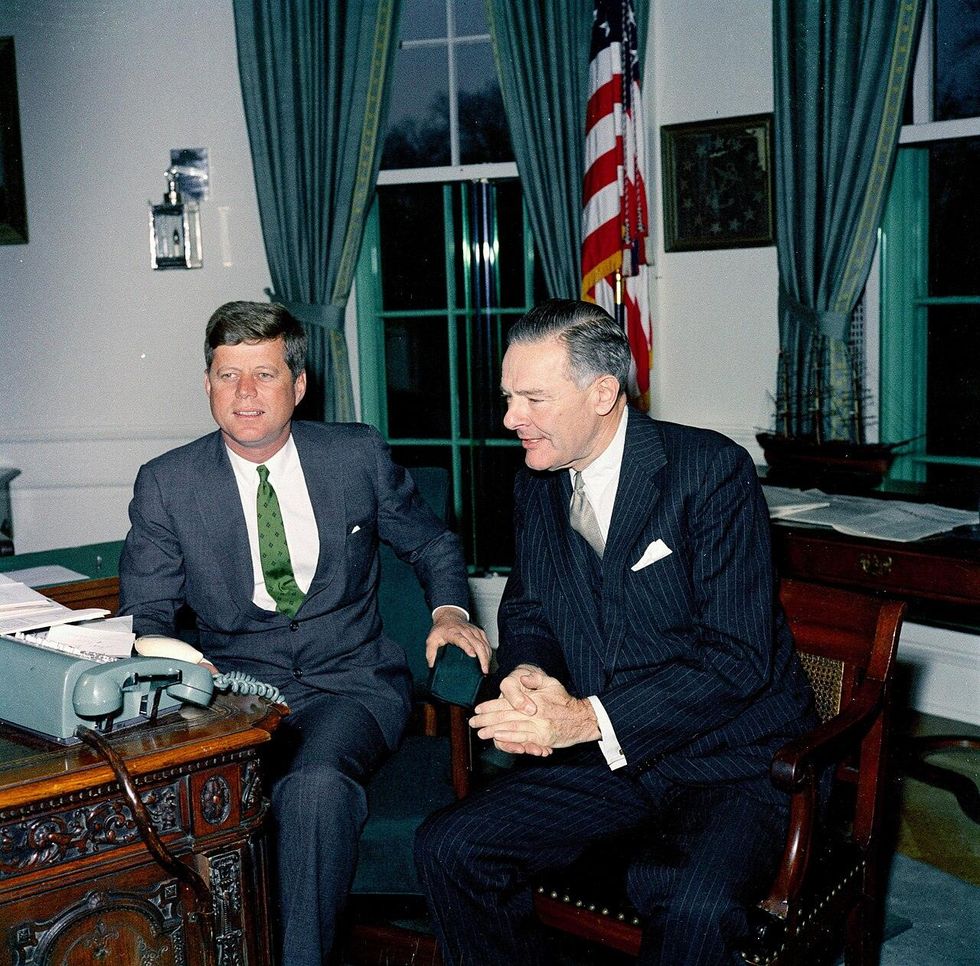Recent days have seen a new flurry of Western media reports that U.S. intelligence believes that Russia is planning to invade Ukraine early in the new year. These reports have already led to warnings by NATO and Washington that Russia would pay a heavy economic and political price in the event of a war.
Russia, for its part, has denied the dire nature of the reports, blaming “a targeted information campaign,” according to Dmitry Peskov, President Vladimir Putin’s spokesman, on Monday. “This is building up tension.”
Nevertheless, this should also lead to a determined and sincere new effort by the United States and leading European governments to find a reasonable compromise with Russia over the Ukrainian disputes. For quite apart from the global economic damage that would result from a war in Ukraine, and the ways in which China would take advantage of such a crisis, the West has a very strong reason indeed to avoid a new war: the West would lose.
Intelligence about Russian plans may be exaggerated, imagined or even fabricated. Recent years have seen a series of such scares that turned out either to be unfounded, or to be Russian warnings to Ukraine against an attack on the Russian-protected separatist Donbas region of Ukraine.
For Russia, there are massive disincentives against an invasion: The European Union would impose greatly intensified sanctions that would do vast damage to an already troubled Russian economy; the Nord Stream gas pipeline would be abandoned; Russia would be forced into almost complete dependence on China; parts of the Ukrainian army would fight very hard, and might inflict heavy Russian casualties; and if it occupies large new territories, Russia would face the challenge of ruling not the pro-Russian populations of the Donbas and Crimea, but significant numbers of infuriated and rebellious Ukrainians.
On the other hand, in recent months Russian anxiety over Ukraine has grown in significant ways, as highlighted in speeches and articles by President Vladimir Putin and former president Dmitri Medvedev. In the immediate years after the 2014 Ukrainian revolution, Russian feelings about Ukraine were dominated by the belief that the country was so politically and economically dysfunctional that it would never in fact join the European Union or NATO, and that Russia could therefore afford to wait until eventually a sensible Ukrainian government sought a reasonable accommodation with Russia.
Now, however, the Russian government has become concerned that U.S. arms supplies to Ukraine are leading to a situation in which, as Putin phrased it in remarks to the Valdai Discussion Club in October 2021: "The formal membership [of Ukraine] in NATO may fail to take place, but the military development of the territory is already underway. And this really creates a threat to the Russian Federation.”
Moscow is especially alarmed by Ukraine’s acquisition of Turkish Bayraktar combat drones, which in the conflict between Azerbaijan and Armenia over Nagorno Karabakh in 2020 played a key part in the Azeri victory. Russian officials fear that these new weapons might embolden Ukraine to try to recover the Donbas by force, and defeat unprepared Russian forces that intervened — the strategy pursued (albeit with disastrous results for Georgia) by Georgian President Mikheil Saakashvili when he tried to recover Russian-protected South Ossetia by force in August 2008. This creates a military incentive for Russia to strike first and with overwhelming force, before the Ukrainian military can develop further.
Even more significant are political and cultural changes within Ukraine. Russian confidence in an eventual Ukrainian-Russian rapprochement has also been founded on a belief in the deep historic, cultural, and personal ties between the Ukrainian and Russian peoples. These were referenced by Putin in his essay in July 2021. They are symbolized by innumerable marriages between Ukrainians and Russian, the presence in Russia and the Russian elites of large numbers of people of Ukrainian origin, and of people of Russian origin in Ukraine. They are also reflected in the historic Ukrainian cultural figures working in Russian, like author Nikolai Gogol (Mykola Hohol in Ukrainian), and film director Sergei (Serhii) Bondarchuk.
However, in 2021, the Ukrainian government has taken significant steps to reduce Russian political and cultural influence in the country and greatly restrict the use of the Russian language, which is spoken as their first language by almost a third of Ukrainians. In the event of war, the Ukrainian armed forces would very likely inflict serious losses on their Russian adversaries. They are much better equipped and trained than in 2014, and key units are strongly imbued with bitterly anti-Russian nationalism. Nonetheless, the brute military facts are overwhelmingly in favor of Russian victory. The Russian army outnumbers the Ukrainians by more than four to one (much more if Russia mobilizes its reserves), and Russian combat aircraft outnumber the Ukrainians by more than ten-to-one. Russia has approximately 2,900 tanks to Ukraine’s 800, and more than 400 of the Russian tanks are significantly modernized T90s. Russia also has more than 10,000 mothballed tanks, though how many of these are actually useable is not known.
As for the United States and NATO, most probably they would not intervene — as they failed to intervene to help Ukraine in 2014 and to help Georgia in 2008, despite much talk of American commitments to these countries. If after all the Western rhetoric about support for Ukraine the United States and NATO stand by and do nothing while Ukraine is crushed, the damage to U.S. credibility will be very grave, and will be seriously noticed in Beijing. It could possibly be, therefore, that reckless hawks in the U.S. establishment might in fact engineer some form of military intervention in Ukraine.
If this were to occur, the results would be catastrophic. Quite apart from the risk of nuclear war, Russian forces colossally outnumber not just the Ukrainians, but any forces that the United States and NATO could or would deploy quickly in Ukraine, and would therefore win a ground war with NATO.
The United States has only three combat brigades based in Europe, and only one of them is armored — far too few to fight Russia. It does have more than 200 combat aircraft, but these too would initially at least be severely outnumbered. If America were seriously planning to fight Russia, it would need vastly to increase these forces — with everything that would mean for increases in the U.S. military budget (at the expense of domestic needs and the national debt), and for a weakening of the U.S. position vis-a-vis China.
On paper, America’s European NATO allies have hundreds of thousands of “combat” troops — but does anyone seriously think that their governments would send them to fight in Ukraine, or that European publics would allow them to do so? Britain might loyally turn up as usual; but due to recurrent cuts, the entire British Army is now capable of fielding just two combat brigades — and only one of these immediately.
Rather than repelling a Russian offensive, the United States would therefore be faced with the prospect of planning a great and horribly bloody war to recover lost Ukrainian territory. This would also risk becoming a world war; for it is virtually certain that China would exploit a war between the United States and Russia, thereby threatening the United States with the risk of two wars simultaneously – and defeat in both.
It is still entirely possible to avoid this outcome. A reasonable basis for a solution to the Donbas dispute has existed since 2015, in the form of the Minsk II protocol: full autonomy for the Donbas within Ukraine, under Ukrainian sovereignty but without Ukrainian troops, and guaranteed by a United Nations peacekeeping force. As for cultural and linguistic protections for Russians in Ukraine, these should be supported by the West as a matter of basic principle.
Similarly, the Austrian State Treaty of 1955 (which led to the withdrawal of Soviet and Western occupation forces from that country) provides a reasonable template for Ukrainian neutrality, which would eliminate strategic rivalry over the country while leaving Ukraine free to try to develop as a modern free market democracy. Even in the case of Crimea (which Ukraine will in any case never recover), a diplomatic compromise could be found in terms of Western recognition of Russian sovereignty in return for Russian recognition of the independence of Serbia’s breakaway province of Kosovo.
These compromises would be very painful for Washington, and would require considerable moral courage. The possession of moral courage, linked to true patriotism, is however the most important element in the difference between a statesman and a mere politician. The experience of the past generation suggests that the contemporary West is incapable of producing statesmen. President Biden now has the chance to prove that impression wrong.





 President John F. Kennedy and Henry Cabot Lodge Jr. in 1961. (Robert Knudsen/White House Photo)
President John F. Kennedy and Henry Cabot Lodge Jr. in 1961. (Robert Knudsen/White House Photo)










